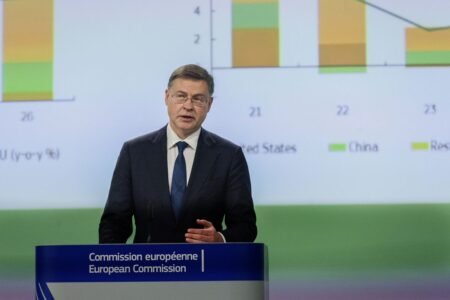(LUXEMBOURG) – The latest bank stress test by the European Banking Authority should have been more demanding in testing banks’ resilience to systemic risks across the EU, the EU Court of Auditors said on Wednesday.
The simulated shocks were in fact milder than those experienced during the 2008 financial crisis and the adverse scenario used did not appropriately reflect all relevant systemic risks to the EU financial system, said the auditors. In addition, when designing and carrying out the test, the EBA relied heavily on national supervisors, but lacked resources and could not oversee them effectively.
Since 2011, the EBA has run the EU-wide stress tests to assess banks’ resilience to shocks such as a severe recession, stock-market crash or a loss of confidence. The auditors examined whether the 2018 test was fit for purpose. They looked at criteria for selecting banks and the process for identifying risks.
“European banks should have been tested against more severe financial shocks,” said Neven Mates, Member of the European Court of Auditors responsible for the report. “Moreover, key decisions at the EBA are taken by representatives of national supervisors and an EU-wide perspective was not sufficiently taken into account in the way the test was designed and conducted.”
The 2018 stress test imposed less severe adverse scenarios in countries with weaker economies and more vulnerable financial systems. For this reason, the low impact on certain banks may have been due not to their better health, but rather to a lower stress level being applied. The auditors also found that not all vulnerable banks were included in the test and that certain banks with a higher level of risk were excluded.The EBA was successful in coordinating the test within tight deadlines, involving many stakeholders. At the same time, the European Central Bank (ECB), national central banks and authorities played a very prominent role in the design of the test. Furthermore, when it came to verifying how banks estimate the impacts, the EBA decided to rely entirely on national supervisors and the ECB. Coupled with the EBA’s limited ability to control the stress-testing process, its limited resources and complex governance arrangements, this was not conducive to ensuring comparable, unbiased and reliable results for banks across various Member States.
Although the EBA made an unparalleled amount of data on banks accessible, some critical information, namely the capital requirements for each bank and how many banks would have breached them under stress, was lacking.
The auditors recommend that the European Commission review and strengthen the EBA’s governance arrangements and increase its resources so that future stress tests do not suffer from similar shortcomings. At the same time, they say the EBA should:
- increase the geographic spread of its tests and select banks based also on systemic risks, rather than just on size;
- define minimum stress levels for the EU as a whole and consider risks from the point of view of an EU-wide financial system;
- enhance its control over the test design and strengthen its supervisory approach.








